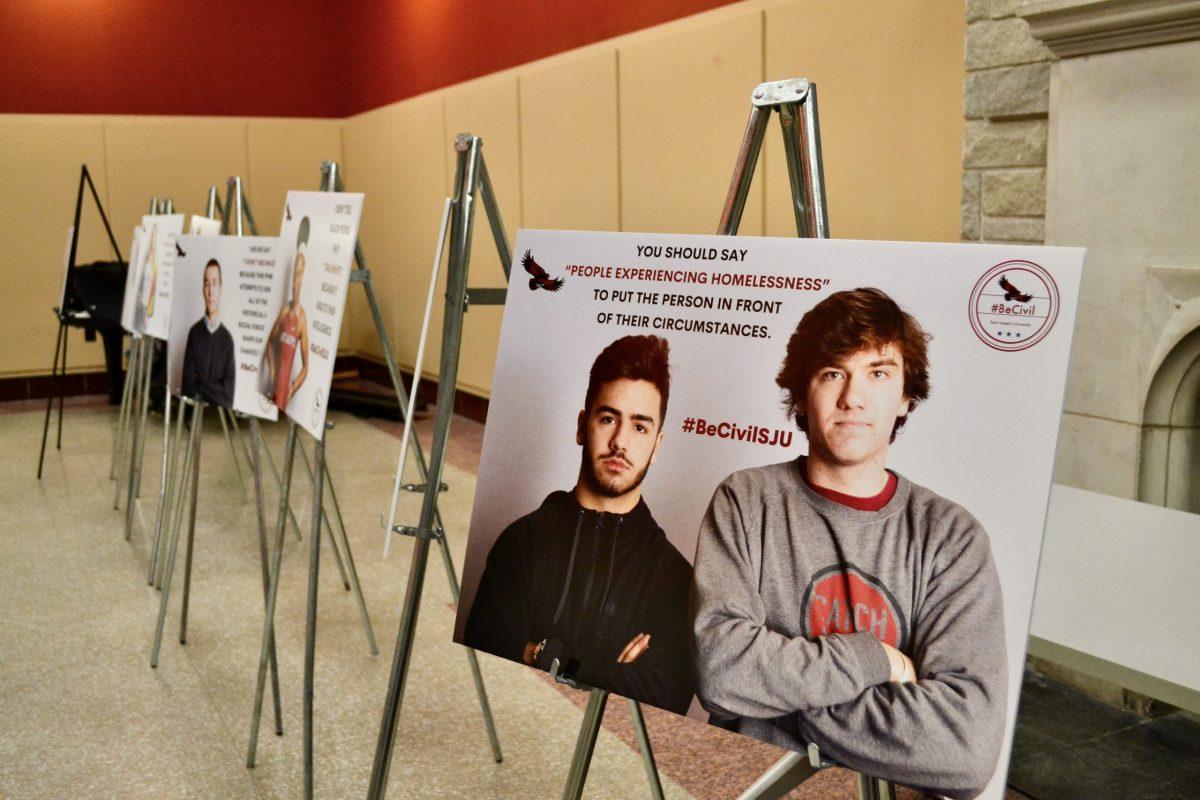A poster showcase about the importance of inclusive vocabulary is the latest iteration of the #BeCivilSJU campaign.
The campaign was spearheaded by University Student Senate (USS). Members of the Black Student Union, Asian Student Association and Latino Student Association also formed part of the organizing efforts.
The poster showcase, which took place Feb. 19 in the North Lounge in Campion Student Center, featured a series of posters and banners that highlight the use of inclusive vocabulary. Pictured in these posters are prominent student leaders, athletes and faculty.
“When people see that these leaders aren’t saying phrases or words like these, people will take notice and will double think their daily vocabulary,” said Asia Whittenberger ’22, USS inclusion and equity chair.
Taylor Stokes, a member of USS and current leader of the #BeCivilSJU campaign, said some people aren’t aware of the microaggressions that are embedded in the language they use. She hopes the posters shed light on an ongoing problem of degrading vocabulary.
“We are highlighting every issue so that people see themselves in the campaign and feel like they are being represented,” Stokes said.
The poster that features John Aydin ’20, vice president of SJUPride, calls for people to stop using common sayings that are not inclusive to all individuals.
“I don’t say ‘Saturdays are for the boys’ because this phrase excludes those who do not identify as cisgender,” it reads.
In another poster, Jack McCaul ’22 and Nick Pascale ’22, who are Orientation Leaders, call attention to the fact that struggles and hardships do not define individuals. Their poster reads, “You should say ‘people experiencing homelessness’ to put the person in front of their circumstances.”
Langston Livingston ’20, an outfielder for the St. Joe’s baseball team, calls attention to microaggressions, in his poster, which includes the quote, “I don’t say ‘someone is talking or acting white’ because speaking well or being educated should not be synonymous with whiteness.”
Whittenberger said the campaign aims to reach everybody in the campus community.
“If there was to be a specific audience, I think it would be people that don’t understand right from wrong phrases,” Whittenberger said.
Natalie Walker Brown, director of Inclusion and Diversity Academic Achievement, said she feels that first-year students may have
a better response to the showcase because they are more open than previous generations.
“The goal is to raise awareness, hold people accountable, and to be transparent about who we say we are as a community,” Walker Brown said.















































